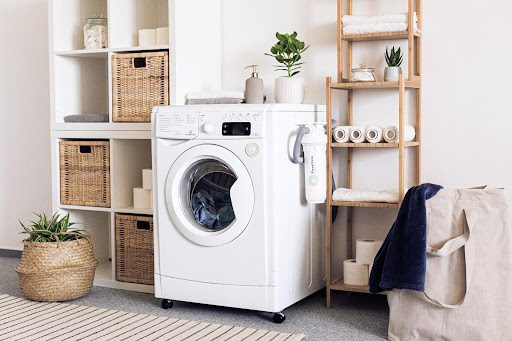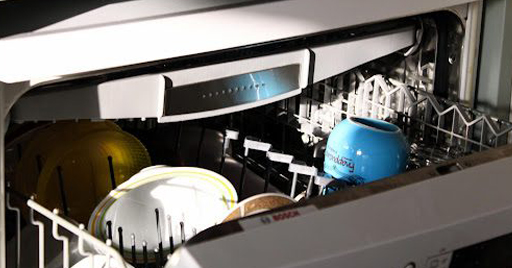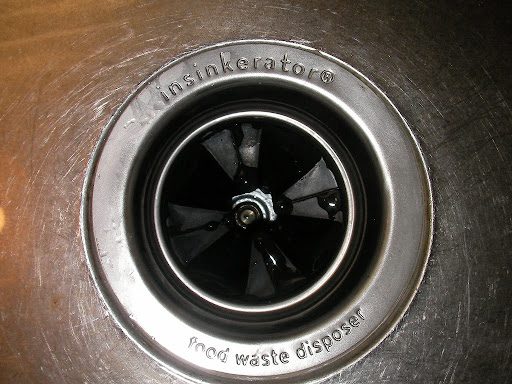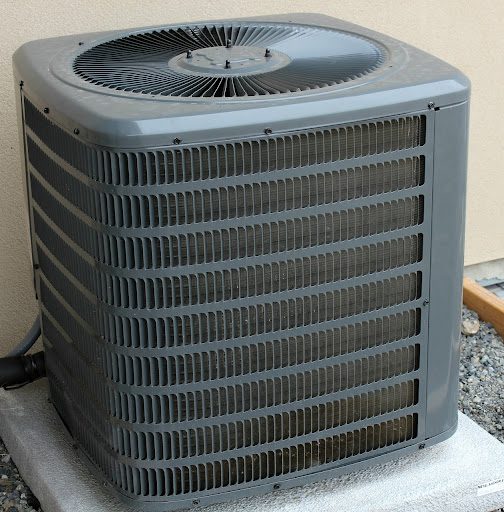HOW TO PROTECT YOUR HOME APPLIANCES FROM MAJOR FAILURES


Some significant parts of homeownership that are so often taken for granted are the appliances. These useful tools make our everyday lives more accessible and more efficient. However, when a major appliance breaks down or fails, it can lead to many more problems. For example, a broken refrigerator can cost you hundreds of dollars in spoiled food, or a failing HVAC unit can leave you stuck in the cold. In addition, it can cost hundreds of dollars for home system and appliance repairs. That’s why it’s so essential to protect our home appliances from major failures.
You may be wondering, “How do I protect my household appliances?” You can reduce the risk of failure by keeping up with regular household maintenance. Today, we’ll examine some tips to help you protect them from failures.

Refrigerators have coils that are most often located on the underside or backside of the unit. These coils should be cleaned at least every six months to prevent dust accumulation. Most homeowners simply vacuum any dust off the coils to clean them. Dust can settle on these coils, decreasing airflow, which causes the compressor and condenser fan to run longer and get hotter.
Refrigerators also have a gasket around the door that allows the fridge to seal in the colder temperature when you shut the door. This gasket should also be cleaned regularly to prevent problems. The most frequent culprit behind door-gasket issues is food buildup. Food buildup, such as syrup, honey, jelly, condiments, or any other spilled food or drink, can accumulate on the door gasket and prevent the door from sealing properly, eventually causing the gasket to tear away from the door.
These simple maintenance tasks can be completed quickly and can save you hundreds of dollars on repairs. For example, new compressors can cost as much as $600, condenser fans usually cost around $250, and a new door gasket typically ranges from $150 to $300. Therefore, maintaining your fridge is crucial to saving money and preventing a significant failure.

Many homeowners may not realize that all washing machines and dryers have a weight limit. These weight limits are not a recommendation but a requirement, and they’re there for a reason. For example, overfilling a front-loading washer or dryer can lead to some costly problems, such as a damaged drum bearing or a burnt-out motor. Not to mention, an overfilled dryer will take significantly longer to dry clothes, wear out the drive belts, and damage the drum support rollers.
Even top-loading washers and dryers can be damaged by too much weight. For example, if a top-loading washing machine is over its weight limit, smaller clothing items may float to the top and get lodged in the pump, the drive coupler may break, and the drive belt can burn out. These repairs can cost hundreds of dollars to fix.
So, to ensure you’re using your washing machine and dryer properly, consult your owner’s manual to check the weight limits for your home’s units and do not exceed these limits.

If you didn’t realize that your dishwasher has a filter, then it’s probably clogged and will lead to some concerning problems. If you don’t keep the filter screen clean, small pieces of food waste will decompose into a slime-like consistency, clogging up your dishwasher’s filter.
A clogged filter will limit water flow and lower your unit’s performance. If you’re noticing that your dishwasher isn’t getting dishes clean or a foul odor coming out of your dishwasher even after the dishes have been cleaned, your filter is most likely clogged. Hiring a repair person to come and clean out the food waste can cost between $150 and $200 on average.
In addition, dishwashers also have a similar door gasket to refrigerators. A dishwasher’s door gasket can also become dirty from food waste, causing the same issues as a refrigerator door gasket. However, when a dishwasher door doesn’t seal, it can potentially flood your kitchen. It’s therefore crucial to keep this component clean and gunk-free to prevent breakdowns and expensive repairs.
Excessive soap can cause water-flow issues as well. So, if you don’t use prepackaged detergent packs, limit yourself to no more than one teaspoon of detergent for a standard dish load to prevent excessive soap from stopping up your water flow.

Aside from the unique cleaning requirements of major appliances like refrigerators and dishwashers, you should keep all of your home appliances clean to keep them safe from major failures. However, we have some tips for routine cleaning. You should go about cleaning any appliance carefully.
Try to avoid spraying harsh cleaners directly onto your stovetop, as the liquid cleaner can seep in behind knobs or inside of touch-control panels, which may cause them to burn out. Stoves and ovens aren’t the only appliances with knobs or control panels. Most household appliances have these components, and they can all be damaged this exact way.
A touch-control panel typically costs approximately $500 to repair, and faulty igniter switches on stoves can cost up to $300 to fix. To avoid these expensive repairs and shorting out the electrical components of your appliances, spray a small amount of cleaner on a clean cloth, paper towel, or sponge and carefully wipe down these knobs and touch-control panels.
On the other hand, neglecting regular cleaning for your appliances can cause many of the same problems. For example, as food waste, dust, dirt, or any other debris builds up around knobs and control panels, it can damage them or cause them to malfunction or short out, resulting in the same costly repairs.

Garbage disposals are handy appliances that help us take care of food waste. However, due to the nature of their job, they can get pretty filthy without regular maintenance. When food waste builds up in these units, it can cause several issues, including a burnt-out motor.
The first place that food waste begins to accumulate is the splash guard. To keep your splash guard clean and prevent food waste buildup, first cut off the power to the disposal for your safety. Next, lift the flaps and scrub, paying extra attention to the underside with a toothbrush and grease cleaner.
If your garbage disposal is being louder than usual or it seems like it’s struggling, all disposals have an overload feature. This feature automatically cuts the power to it when the motor becomes overloaded and starts to overheat. Then, once the engine has time to cool off, you can push the reset button located either on the side or underneath the unit to get it back up and running. However, keeping your garbage disposal clean will not only freshen up your home but also prevent the need for the overload feature and save you from expensive repairs.

Your major appliances don’t just include the units inside of your house. You also need to consider the appliances outside your home, such as the HVAC unit. Your HVAC system is responsible for heating and cooling your home to regulate the temperature inside. If this essential appliance fails, you may find yourself in the freezing cold of winter or the blistering heat of summer without any way to maintain safe temperatures for you and your family. Therefore, it’s an excellent idea to add an annual HVAC maintenance and tune-up bill to your regular budget.
Most professional HVAC technicians will recommend this maintenance visit to be scheduled in the spring. When you schedule this tune-up and check, a licensed technician will examine your HVAC unit for common signs of issues and repair them before they evolve into severe problems. As a result, you may spend a little more on maintenance, but you’ll ensure your home will be heated or cooled correctly year-round while saving hundreds of dollars on costly repairs.
Another critical aspect of keeping your HVAC unit in top condition is regularly changing the air filters. As the HVAC system circulates the air that comes into your home, it’s passed through your air filters. The job these filters perform is to prevent dust, dirt, and other allergens from continuing to circulate throughout your home. As a result, these filters will clog with debris in a relatively short time, which causes the system to work much harder to push air through your air ducts.
As with all of your other appliances, the harder the unit has to work, the faster its components will fail. You can prevent your HVAC system from overtaxing itself by regularly swapping out these filters for new ones. It’s recommended to change your air filters every three months for the standard home. If your house is home to pets, you may want to consider changing your air filters every two months to account for all of the pet hair and dander that adds to the existing debris these filters catch.

When you purchase a new appliance for your house, it will most likely come with a care manual. The manufacturer writes these manuals to ensure that you can care for your products correctly. Your appliance’s care manual will contain all of the information on how often you should clean it and which parts are the most likely to need repairs or replacement. In addition, they’ll cover what signs may indicate a problem with your product and tips for keeping the appliance working for as long as possible.
There is also an always-handy troubleshooting guide that almost every care manual contains. The troubleshooting guide will list the most common issues that a particular unit may experience, what problems this issue may indicate, and how to fix it. In addition, most manuals will also have a number you can call if you’re having trouble with your appliance.
So, if you want to ensure your appliance lasts as long as possible before it needs repairs, always read your care manual and keep it handy in case you need to refer to it again.
A home warranty plan is vastly different from homeowners insurance. Homeowners insurance covers perils like fires, property crimes, and some types of water damage that may affect the entire home or homeowner’s possessions. On the other hand, home warranties are service contracts between homeowners and a home warranty company that provide discounted repair services on a home’s primary components, such as the HVAC system, household appliance repairs, plumbing, and electrical systems. In addition, these home warranties come in various plans with a range of different extended options. As a result, these plans can be customized to fit practically any homeowner’s situation and needs.
Like most warranties, a home warranty company offers protection against costly, unforeseen home repair bills and provides peace of mind to homeowners. For those without an emergency fund or who want to save it for the future, home warranties can function as a buffer against these expenses. Home warranties are also the perfect solution for those who aren’t experienced in repairs or don’t have the availability to search for nearby contractors when they have a problem. Not to mention, if you have expensive taste in appliances, a home warranty plan can help you save money by keeping the appliances you prefer running.
If you want to learn more about protecting your household appliances or if you’re interested in a home warranty for your peace of mind, visit our homepage or contact us today!

Coverage not available in CA, WA and HI